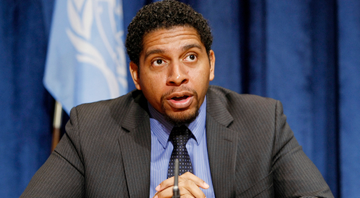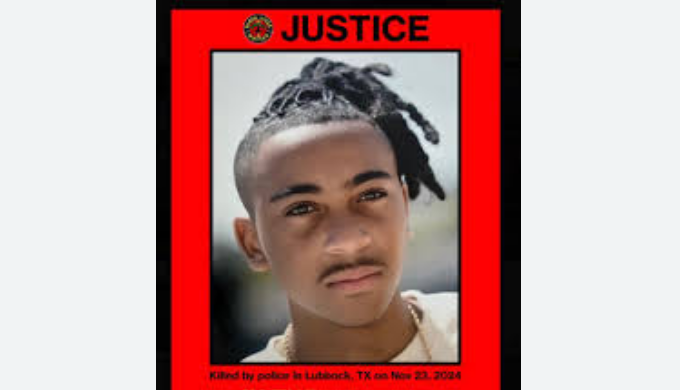Camillo Gonsalves, Foreign Minister of St. Vincent and the Grenadines
This year’s Reparations Issues Forum at the Congressional Black Caucus Foundation’s Annual Legislative Conference in Washington, D.C. featured a powerful lineup of powerful speakers who pushed for the creation of an African American Reparations Commission.
With Congressman John Conyers, Jr., Ranking Member, House Judiciary Committee, serving as the Honorary Host, an overflow audience was treated to a series of substantive and powerful presentations calculated to strengthen the Reparations Movement in the Caribbean and the U.S.
Congressman Conyers has championed the cause of Reparations in the Congress by consistently introducing HR-40, the Reparations Study Bill, since 1989. He welcomed the speakers and audience, which included several Ambassador from the Caribbean Diplomatic Corp., by restating the importance of “sustaining a dialogue on the legacy of slavery” as a means of achieving meaningful racial justice and reconciliation in America.
Don Rojas, Director of Communications for the Institute of the Black World 21st Century, introduced the Honorable Camillo Gonsalves, Foreign Minister of St. Vincent and the Grenadines and the Keynote Speaker and Special Guest Sir Hilary Beckles, Chairman of the CARICOM Reparations Commission. Speaking on behalf of Prime Minister Dr. Ralph Gonsalves, who was unable to attend the session, Foreign Minister Gonsalves provided a comprehensive historical background and rationale for CARICOM’s bold, unanimous decision to demand reparations from the former European colonialists for Native genocide and African enslavement. He stated that the demand for “reparatory justice” has become the cornerstone of the domestic and foreign policy of his country.
Fresh off a recent speech on reparations delivered to the House of Commons in Great Britain, Sir Hilary Beckles passionately detailed crimes against Native People and enslaved Africans committed by European colonialists and the gross exploitation that is directly responsible for the underdevelopment of Caribbean nations today. CARICOM’s Ten Point Reparations Program is designed to compel former colonialists to “clean up the mess” they left as a burden for “independent” Caribbean nations. Then, in a tribute to Congressman Conyers for his leadership on reparations, Professor Beckles brought the audience to its feet by proclaiming a “Conyers’ Decade of Reparatory Justice” as a theme to galvanize the Reparations Movement in the U.S. and beyond.
Atty. Nkechi Taifa, Senior Policy Analyst, Open Societies Foundations, joined in praising Congressman Conyers for his steadfast and uncompromising work on the issue of reparations. She also acknowledged the milestone contributions of the National Coalition for Reparations for Blacks in America (N’COBRA) and numerous activists and organizers alive and deceased who kept the issue alive among African Americans and people of goodwill. Atty. Taifa reminded the audience of the basic definition for reparations as “the repair of the cultural, spiritual, psychological and physical damage done to a subjugated or oppressed people.”
Ta-Nehisi Coates, Senior Editor, The Atlantic, is a recent convert to reparations whose brilliant and compelling essay The Case for Reparations has introduced a new generation to the concept. He stressed that the process of “extraction” of wealth and opportunities from Africans in America has never been accidental but an ingrained and devastating dimension of the evolution and development of the American nation. If reparations are to be won, this reality must be an integral part of the dialogue. He urged the audience not to be dissuaded by arguments about the feasibility or practically of the concept but to be motivated by the necessity to achieve justice.
Kaimi Wenger, Law Professor, Thomas Jefferson Law School, who has written on the subject, referenced some of the legal cases that have been filed to advance the cause of reparations. He suggested that it is important to “think outside the box” in devising legal and political strategies to intensify education and advocacy campaigns to strengthen the movement. Professor Wenger encouraged the audience to never give up on this worthy cause.
Dr. Ron Daniels, President of the Institute of the Black World 21st Century, enthusiastically embraced Professor Beckles’ proclamation of a “Conyer’s Decade of Reparatory Justice.” He suggested that it is a powerful and appropriate theme to motivate members of the Congressional Black Caucus, civil rights/human rights, faith, labor, civic and fraternal leaders to recommit to promote HR-40 in honor of the visionary and courageous work on reparations by the Dean of the Congressional Black Caucus.
Dr. Daniels also took the occasion to announce an agreement in principle for IBW to host an official meeting of the CARICOM Reparations Commission in the U.S. at a mutually agreeable time in the near future — most likely in New York City. In addition, he indicated that IBW will create an African American Reparations Commission based on the CARICOM model. This Commission will take up the task of formulating a Reparations Program as a focal point for creating greater public awareness and mobilizing/organizing to advance the struggle to achieve Reparatory Justice in the U.S. After formulating a Preliminary Program, the Commission would conduct regional hearings for community review, comment and input before adopting a Final Program.
Dr. Daniels said the African American Reparations Commission will be a representative and inclusive body of fifteen women and men beginning with the selection of organizations and leaders who have been in the forefront of the Reparations Movements as well as notable leaders who support the concept. N’COBRA, December 12th Movement, Nation of Islam, Dr. Iva Carruthers, Dr. Conrad Worrill, Dr. Ray Winbush, Atty. Nkechi Taifa, Professor Charles Ogletree, Dr. Claire Nelson, Rev. Dr. Jeremiah Wright, Danny Glover, Dr. Julianne Malveaux, Susan Taylor, Dr. Marc Lamont Hill and Ta-Nehisi Coates are among the potential Commissioners mentioned.
IBW estimates that a budget of $150,000 will be required to finance the first year to eighteen months of the work of the African American Reparations Commission. “Black people and those sympathetic to the cause will have to finance this initiative,” Dr. Daniels explained.
“We can’t expect corporations or foundations to underwrite a campaign for Reparations for Black people. In the spirit of the Honorable Marcus Mosiah Garvey, IBW is counting on contributions from the people to finance this Initiative.” Emily Moore, a retired educator, tennis instructor and community activist from New York, stepped up to the plate to write the first check for $1,000 toward the goal of $150,000.
Obviously moved by the many tributes and calls for a “Conyers’s Decade of Reparatory Justice,” in his concluding remarks Congressman Conyers remarked that “this Reparations Forum has been the most substantive since I began introducing HR-40. I expect great things as we move forward.”








